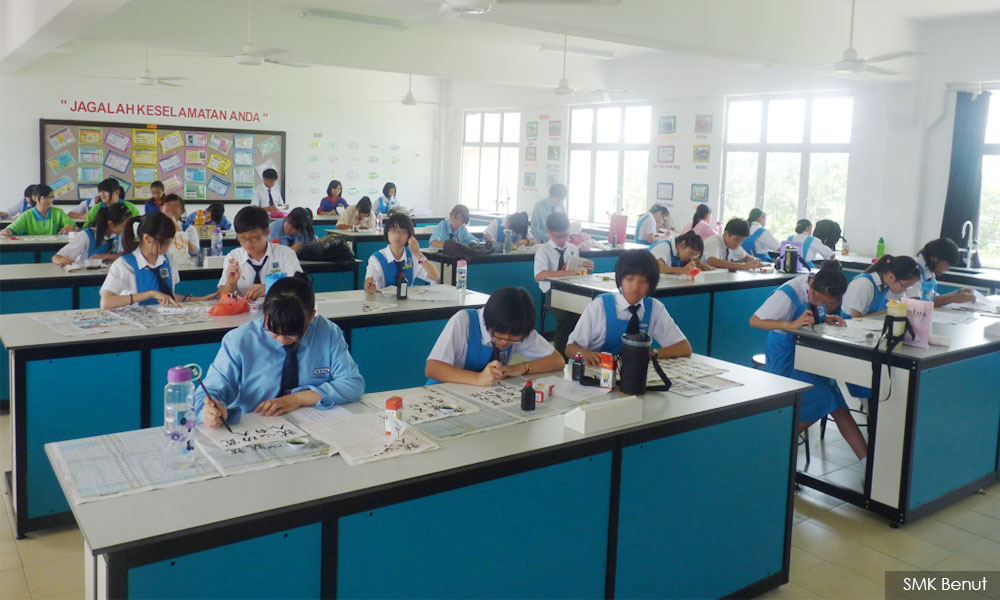COMMENT | The cornerstone of a truly successful nation in the twenty-first century characterized by the emergence of a knowledge-based economy is undoubtedly its human capital, which in turn, is greatly shaped by its education system. As aptly stated by Lester Thurow: “The dominant competitive weapon of the twenty-first century will be the education and skills of the workforce.”
Hence, a high-performing school system is crucial for transforming Malaysia into a high-income and sustainable economy. We also need to empower and “future-proof” our young Malaysians to thrive in the rapidly changing and disruptive workplace of the future due to the fourth industrial revolution.
We don’t need foreign experts to tell us what ails our school system and how to go about transforming it. What we need is to face stark reality, learn from our past shortcomings, and to muster the political will to institute much needed education reforms.
We have sacrificed meritocracy and quality teaching for mediocrity, politics and an overdose of social reengineering. Failure to transform our school system based upon systemic and brutal change will erode our nation’s global competitiveness, organizational productivity and individual well-being.
Inadequacy of the Malaysian school system
The fact that our school system needs immediate and drastic transformation is clearly evident. In the 2015 Trends in International Mathematics and Science Study (Timss), Malaysia (Form Two students) scored merely 465 in Mathematics and 471 in Science, as compared to Singapore that scored 621 and 597 respectively.
According to the Programme for International Students Assessment (Pisa) 2015 report, Malaysian students ranked 50th out of 72 countries in terms of reading proficiency, 45th in Mathematics and 47th position for Science, all below the corresponding OECD mean scores. Malaysia’s quality of school education even lags behind that of Vietnam (a lower-income nation) by a wide margin.
English proficiency has also deteriorated over time and this is one of the causes of the unemployment (besides lack of soft skills and the required technical competence) of more than 200,000 Malaysian graduates.

Another area of grave concern is teacher quality. Forty-six percent of principals report a lack of qualified teaching staff as a constraint in enhancing teaching quality.
In 2011, researchers from Akademi Kepimpinan Pengajian Tinggi observed 125 lessons in 41 schools across Malaysia. They found that 50 percent of the lessons were delivered unsatisfactorily with a focus on passive and surface learning, rather than on active and deep learning which are necessary to cultivate higher-order thinking skills in students.
In short, the products of our school system are generally ill-prepared either for higher education or work. Our students lack critical and creative thinking skills because our education system promotes conformity and uniformity. Worse still, they have been “conditioned” to be spoon-fed.
As aptly stated by Johan Jaaffar, national schools have become Malay schools and have failed spectacularly to become the school of choice for non-Malay students. In the words of Musa Hitam, “… the quality of education in these schools is known to be so low that they (non-Malays) have no confidence their children will get the right or proper education there.”
Transforming Malaysian schools
The first step in transforming our school system is to determine the desired outcomes of Malaysian education: “What kind of knowledge, skills, values and personal traits should students have to enable them to thrive in the dynamic workplace and to function productively in society as ethical citizens?”
To my mind, Malaysian students should possess adequate disciplinary knowledge (conceptual understanding); be self-confident and achievement-oriented; persuasive and effective communicators; demonstrate integrity and a strong work ethic; fast, self-directed, self-reflective and lifelong learners; resilient; demonstrate good interpersonal and teamwork skills; good problem solvers with analytical and creative minds; computer and information literate; and productive and responsible citizens with inter-cultural tolerance.

Towards this end, schools should provide a high quality, broad-based and holistic education with emphasis on cognitive intelligence, emotional intelligence, moral intelligence, spiritual intelligence, physical well-being and an appreciation of aesthetics.
Learning in Malaysian schools should shift from rote learning to conceptual understanding (deep learning) and real-world applications (authentic learning); from classroom learning to lifelong learning; from students as passive learners to active learners; from one-size fits all to customized learning; and from lower-order thinking to higher-order thinking.
In the twenty-first century school, teachers need to function primarily as facilitators of learning and mentors and not merely as dispensers of knowledge.
Second, we need to recruit teachers based strictly on meritocracy and certain core attributes such as willingness to learn, strong communication and interpersonal skills, and being passionate about teaching.
Hiring proper candidates into the teaching profession is extremely important as teacher quality is the most significant school-based factor in determining student outcomes. Research findings show that over 30 percent of the variance of school student achievement resulted from professional characteristics of teachers, teaching skills and classroom climate. Indeed, students placed with high-performing teachers are likely to progress three times faster as those placed with low-performing teachers.
Simply put, the quality of a system cannot exceed the quality of its teachers. In this regard, the world’s top-performing school systems recruit teachers from the top third of their academic cohort, pay good starting salaries, and undertake high quality teacher professional development programmes to ensure effective instruction in the classroom. Take heed that poor selection decisions can result in up to 40 years of poor teaching.
Third, we must ensure effective school leadership as the quality of school leaders is the second biggest school-based factor in determining student outcomes, after teacher quality.
Effective school leaders (transformational school leadership with a strong focus on instructional leadership) can raise student outcomes by as much as 20–25 percent.
Transformational school leaders are visionary, inspirational, change-adept, and more importantly, they nurture a high-performance school culture which brings out the best in others and transform them into peak performers.
Accordingly, we must ensure that our school leaders are strictly appointed based upon meritocracy and leadership competencies.
Fourth, it is important to adopt an integrated and systemic approach (and not a piece-meal approach) towards transforming schools. School transformation efforts must encompass clear student outcomes; a broad-based and holistic curriculum; competent teacher recruitment and development; effective school governance; varied and student-centric instructional strategies; optimization of e-learning, appropriate assessment and feedback, and a high-performance school culture committed to excellence and continuous improvement.
Fifth, both the Ministry of Education and schools must ensure that there is a constructive alignment between learning outcomes, teaching and learning activities, and the assessment tasks.
Our nation’s future and the wellbeing of its citizens are greatly dependent on high quality education in our schools. Take heed that no amount of education reforms will bring about the desired outcomes without first having quality and dedicated teachers, high-performing school leaders, and a nurturing school climate that brings out the best in both students and teachers.
RANJIT SINGH MALHI is a trainer and author in the areas of management and personal development.
The views expressed here are those of the author/contributor and do not necessarily represent the views of Malaysiakini.
